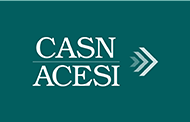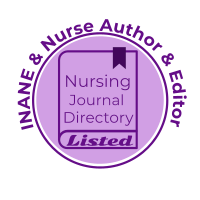Translated Title
Expériences en ligne des enseignant(e)s et des étudiant(e)s lors de la pandémie de COVID-19 : une étude descriptive [Partie 2]
Credentials
Corresponding Author:
Shelley Cobbett, RN, GnT, MN, EdD, Assistant Professor, School of Nursing, Dalhousie University, BSCN Site Administrator, Yarmouth Campus, 58 Vancouver St., Yarmouth NS B5A 2P5 902-742-3542
Patti Hansen-Ketchum RN, PhD, Associate Professor, Director, School of Nursing, Faculty of Science, St. Francis Xavier University, Marguerite 236, Mount St. Bernard, Antigonish, NS 902-867-5027
Nadine Ezzeddine, BSN, MS, MN, Instructor, School of Nursing, Dalhousie University, 5869 University Ave, Halifax, NS, B3H 4R2 902-494-2390
Debbie Brennick, Assistant Professor, School of Education and Health, Department of Nursing Chair, Cape Breton University, 1250 Grand Lake Road, Sydney, Nova Scotia, Canada B1P 6L2 902-563-1960
Willena Nemeth, MN, RN, Director BSc Nursing Program, Associate Professor Nursing, School of Education and Health, Cape Breton University, 1250 Grand Lake Road, Sydney, Nova Scotia, Canada B1P 6L2 902-563-1984
Abstract
Background: Prior to the declaration of the global pandemic in March 2020, little research was available related to online teaching and learning within a professional practice discipline. Post secondary institutions pivoted from “learning as usual” to teaching almost completely in the online environment during a very short time frame. A plethora of related publications have since contributed to knowledge development across many educational programs.
Method: This multi-site research study was conducted to gather and examine the perspectives of nursing faculty and students’ lived experiences while teaching and learning online at the beginning of the global pandemic. Design: Descriptive survey study. Setting: Online environment in Eastern Canada. Participants: Nursing students (N=195) and faculty (N=38) in three BScN programs in the province during the spring and summer semesters of 2020. Participants were invited via email to complete an online survey (via Opinio) about their lived experience of learning or teaching in the fully online environment. The survey included quantitative and qualitative questions.
Results: The findings from the quantitative aspect of this study have been detailed in Part I, which addressed academic stressors, faculty and student perceptual differences related to student engagement, need for building capacity for online learning, the imperative of technological support and reliable internet connections, and the attempt to maintain a healthy work life balance. The findings from the qualitative aspect of this study are captured in this article. The team conducted thematic analysis and determined a pattern of three primary themes and 10 sub-themes including: Learning and Teaching (Environment, Evaluation), Relationships (Social Isolation, Virtual Relations, Communications), and Mental Health (Academic Shock, The Waiting Game, Technology, Resiliency, Work-Life Balance).
Conclusion: Opportunities and implications for nursing education related to learning and teaching in the online environment are discussed.
Résumé
Contexte : Avant la déclaration de la pandémie de COVID-19 en mars 2020, peu de recherches étaient disponibles sur l’enseignement et l’apprentissage en ligne dans une discipline de pratique professionnelle. Les établissements d’enseignement postsecondaire sont passés de « l’apprentissage habituel » à l’enseignement presque entièrement en ligne en très peu de temps. Une pléthore de publications connexes a depuis contribué au développement des connaissances dans de nombreux programmes de formation.
Méthode : Cette recherche multisite a été menée pour recueillir et examiner les points de vue de membres du corps professoral en sciences infirmières et des expériences vécues par des étudiant(e)s avec l’enseignement et l’apprentissage en ligne au début de la pandémie. Devis : Une étude descriptive à l’aide d’un sondage en ligne a été réalisée dans l’est du Canada. Participant(e)s : Des étudiant(e)s en sciences infirmières (N =195) et membres du corps professoral (N = 38) de trois programmes de baccalauréat en sciences infirmières (B.Sc. inf.) d’une province ont participé au cours des semestres de printemps et d’été 2020. Les participant(e)s ont été invité(e)s par courrier électronique à répondre à un sondage en ligne (par Opinio) quant à leurs expériences vécues d’apprentissage ou d’enseignement dans un environnement entièrement en ligne. Le sondage comprenait des questions ouvertes et fermées.
Résultats : Les résultats du volet quantitatif de cette étude ont été détaillés dans Partie 1, qui traitait des facteurs de stress en milieu universitaire, des différences de perceptions du corps professoral et des étudiant(e)s liées à l’engagement de ces derniers, du besoin de renforcer les capacités d’apprentissage en ligne, de l’impératif d’un soutien technologique et de connexions Internet fiables, ainsi que de l’effort de maintenir un équilibre sain entre vie personnelle et professionnelle. Les résultats du volet qualitatif de l’étude sont présentés dans cet article. L’équipe a effectué une analyse thématique et a proposé un modèle regroupant 3 thèmes principaux et 10 sous-thèmes, notamment : apprentissage et enseignement (environnement, évaluation), relations (isolement social, relations virtuelles, communications) et santé mentale (choc universitaire, l’attente, technologie, résilience, équilibre vie personnelle et professionnelle).
Conclusion : Les perspectives et les retombées de l'apprentissage et de l'enseignement dans l'environnement en ligne pour la formation en sciences infirmières sont abordées.
Recommended Citation
Cobbett, Shelley; Hansen-Ketchum, Patricia A.; Ezzeddine, Nadine; Brennick, Debbie; and Nemeth, Willena I.
(2022)
"Faculty and Student Online Experiences Amidst the COVID-19 Pandemic: A Descriptive Study (Part 2),"
Quality Advancement in Nursing Education - Avancées en formation infirmière:
Vol. 8:
Iss.
4, Article 4.
DOI: https://doi.org/10.17483/2368-6669.1342
Creative Commons License

This work is licensed under a Creative Commons Attribution-Noncommercial-No Derivative Works 4.0 License.



